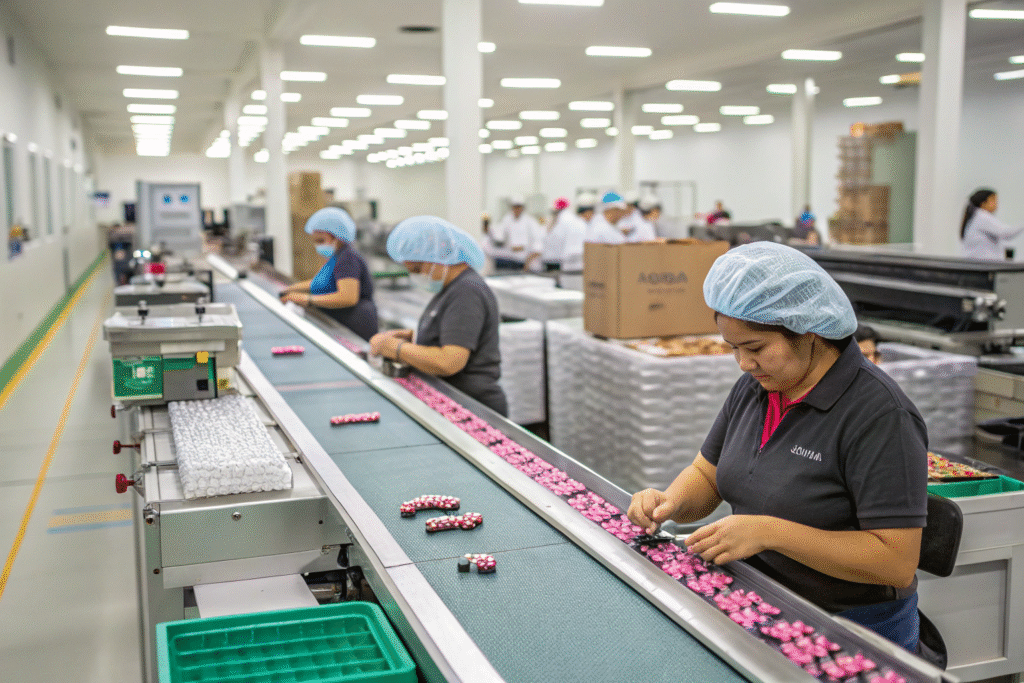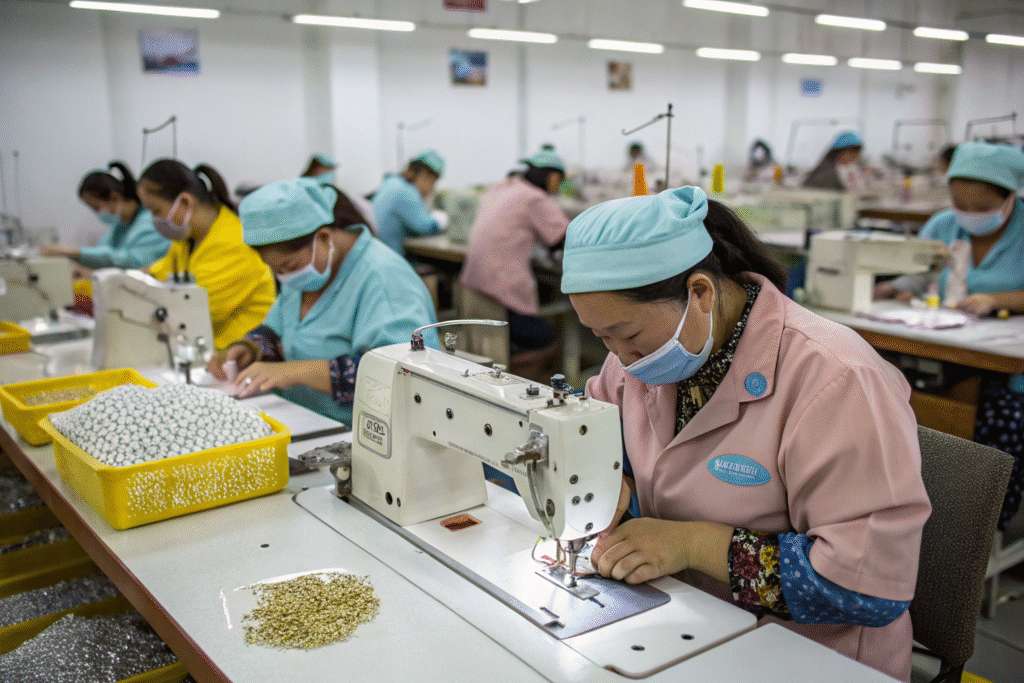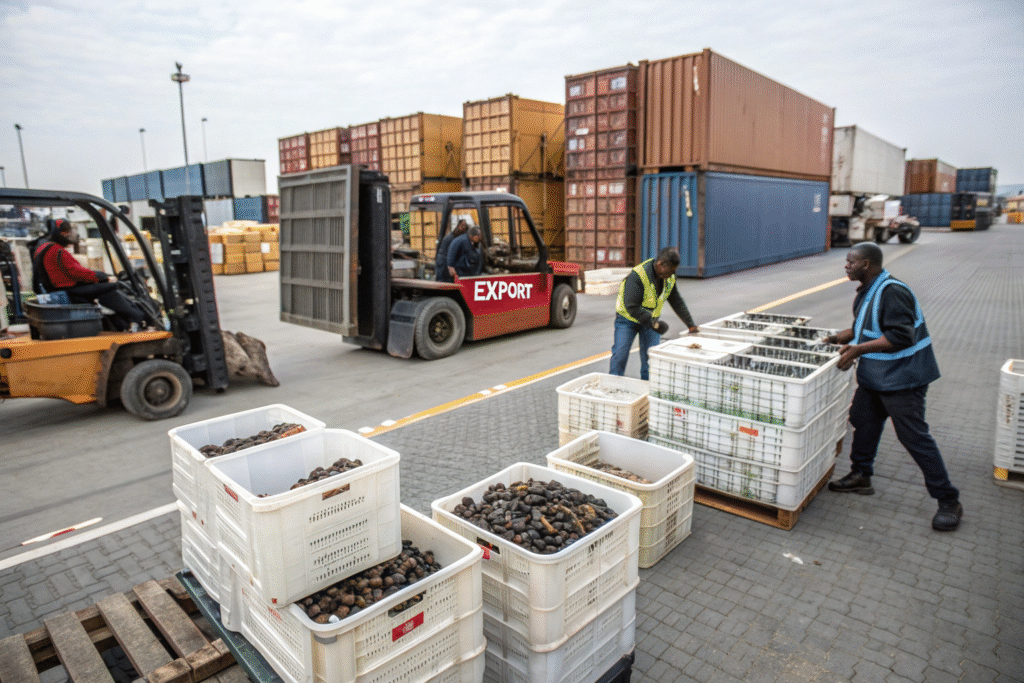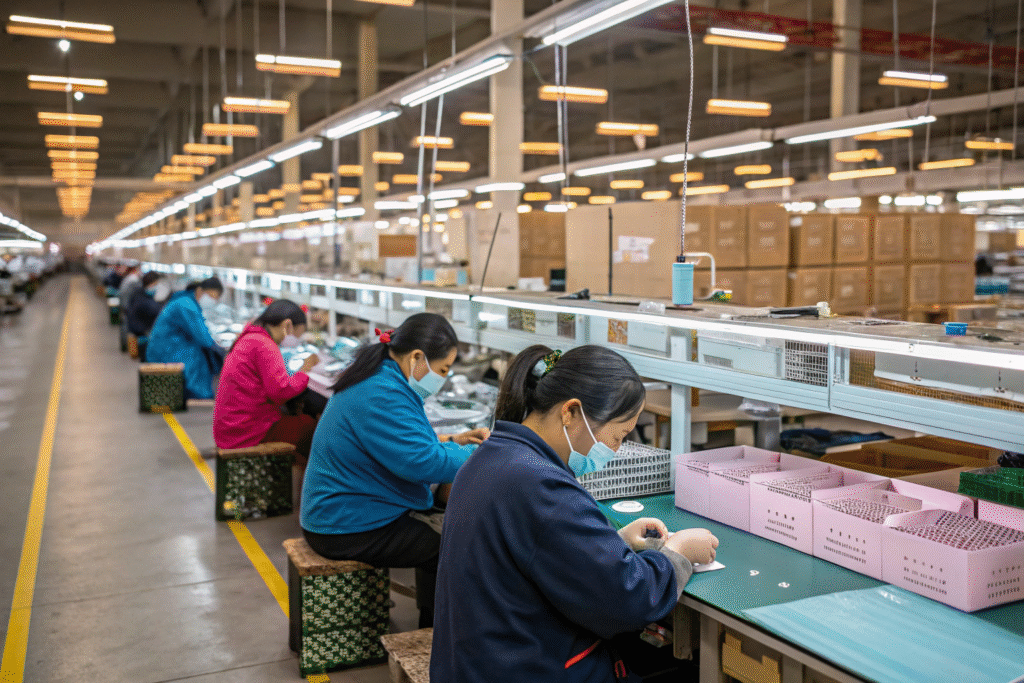During peak fashion seasons—like back-to-school, holiday shopping, and wedding months—buyers often worry about production delays. Even the best-selling hair accessories such as pearl hairpins, velvet headbands, and claw clips can lose their market momentum if they arrive late. Delays not only hurt sales but can also damage trust with retailers and e-commerce customers.
Factories that consistently meet deadlines rely on a combination of early planning, flexible production capacity, and coordinated supply chains. By working closely with suppliers, managing inventory proactively, and streamlining logistics, manufacturers can ensure on-time delivery even during order surges.
That’s why preventing delays is not just about speed—it’s about having a complete system in place. Let’s explore the proven strategies that professional hair accessory factories like ours use to keep products moving from production floor to global buyers without missing a beat.
Strategic Production Planning for Seasonal Orders
When seasonal demand spikes, chaos can creep into the production process. Without a clear plan, even well-equipped factories can get caught off guard by large, urgent orders.
Factories prevent bottlenecks by forecasting demand months in advance and reserving production slots specifically for seasonal orders. This means confirming raw material availability early and locking in supplier commitments before the rush begins.

How Do Factories Align Seasonal Forecasts with Buyer Demand?
Factories gather past order data, market trend reports, and buyer projections to build accurate seasonal forecasts. By combining this with AI-powered analytics from sources like Google Trends and retail sales reports from Statista, production managers can better predict which hair accessories will trend.
Why Is Early Material Procurement Critical?
Ordering fabric, beads, metal clips, and packaging in advance ensures suppliers can deliver without delay. Many factories keep a “seasonal reserve” of core materials to handle last-minute orders without waiting for new shipments. This proactive stockpile helps absorb supply chain shocks.
Efficient Workflow & Production Line Optimization
In busy seasons, even a small inefficiency can cascade into major delays. Factories use lean manufacturing principles to maintain consistent output without sacrificing quality.
Optimized workflows include clear task division, minimized handling time, and integrated quality control at each stage of production. The goal is to prevent defects and rework, which can stall shipping schedules.

How Do Factories Use Lean Manufacturing for Hair Accessories?
Lean production focuses on reducing waste—time, materials, and unnecessary motion. By implementing Kanban boards and real-time tracking systems like Trello or Monday.com, managers ensure each order moves smoothly through production without backlogs.
Can Automation Improve Peak Season Output?
Yes. Automatic cutting machines, heat-press logo stations, and packaging sealers can triple output for certain product types. Factories that invest in automation can meet tight deadlines while maintaining consistent craftsmanship.
Flexible Labor & Shift Management
Even with great planning and efficient lines, manpower shortages can stall deliveries. The best factories anticipate labor demands and prepare accordingly.
Flexible shift arrangements and cross-trained teams allow factories to expand capacity quickly without compromising skill quality. During peak season, additional skilled workers are brought in on temporary contracts to support core teams.

How Do Factories Cross-Train Workers?
By training workers on multiple machines and product categories, factories reduce dependency on single-role specialists. This means a worker who normally stitches headbands can step into a scrunchie line if needed, ensuring no station goes idle. Resources like Manufacturing.net share best practices on cross-training for industrial efficiency.
Why Is Overtime Scheduling Carefully Managed?
While overtime can boost production, excessive hours can lead to fatigue and mistakes. Leading factories use rotating overtime schedules and offer performance bonuses to maintain morale and accuracy during long production cycles.
Streamlined Logistics & Pre-Booked Shipping
Even if production is on time, shipping delays can derail the entire schedule. Smart logistics planning is as important as manufacturing itself.
Factories prevent shipping delays by pre-booking freight slots with trusted carriers, preparing customs documents early, and working with freight forwarders experienced in seasonal peaks.

How Do Factories Avoid Port Congestion?
By booking earlier and using multiple port options, factories can sidestep seasonal bottlenecks. Resources like Freightos help compare carriers and secure faster routes.
Can DDP Shipping Help Buyers During Peak Season?
Yes. Delivered Duty Paid (DDP) terms simplify buyer logistics by letting the factory handle customs clearance, duties, and final delivery. This is especially valuable for retailers who need stock ready for shelf display without extra processing.
Conclusion
Delays during hair accessory peak seasons are avoidable when factories commit to strategic forecasting, efficient workflows, flexible labor management, and proactive logistics planning. By combining these strategies, we ensure our clients receive their products on time, ready to capture seasonal sales opportunities.
If you are planning your next hair accessory order, partner with Shanghai Fumao to take advantage of our large-scale production capacity, skilled QC team, and global shipping expertise. Contact our Business Director Elaine at elaine@fumaoclothing.com to discuss your project today.









